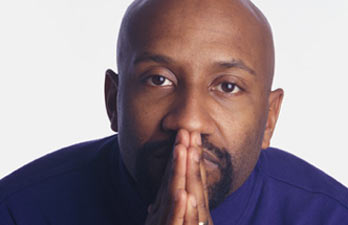|
Should we accept the stereotypes given to us by society, or should we ignore them? As I sat in my Effective Persuasion class at Ryerson University last week, my professor said something that really caught my attention. My professor is a middle-aged white male, very reserved and dignified in his style of dress and manner. He looked at the class and said, “In life, it is hard not to judge people based on the perceived stereotypes that I have associated with certain members of society.” |
 |
He paused for a brief moment and then said that it was up to the individual to either live up to the stereotype or prove him wrong.
As I sat there in class, a young black male, I thought that he had already labelled me according to the way society views young black males: lazy, rude, obnoxious and lacking ambition outside of being cool. At first, I was upset that people still allow stereotypes to dictate their perception of other members of society. However, after thinking about it, I realized that I can’t get upset with his way of thinking. I can’t even get upset with the fact that many of us live and judge according to stereotypes.
For many years, I lived up to the stereotype of the typical young black male. I spent my days smoking weed, chasing females and claiming that I was better than others because I had not become a victim of the ills of society. I felt that I had earned my spot simply because I was one of the few young black males who didn’t go to jail; a headstrong individual full of arrogance, self-confidence and ego, an individual who believed his way of thinking was the only way that mattered in this messed up society.
I was awakened from this mentality one day while working at one of the many call centers in Toronto. A colleague asked me a simple question that forced me to assess my position in society. I was complaining, as usual, about how unjust the company’s policies were, how unfair I had been treated and how unethical this corporation was for enforcing their unreasonable criteria and demands. I remember telling him that this job was beneath me, that with my credentials, I could obtain a better job, an occupation where I would be appreciated and my work would be valued. At that moment, he turned to me and asked me about my credentials and work experience. Stunned and upset by the question, I responded with a few rude comments followed by a sequence of mumbles, and then I moved along.
|
Afterwards, I sat by myself and really thought about what he had asked me. At the time, I had barely finished high school. I had dropped out of my third college after receiving a handsome amount of OSAP, like many of my brothers and sisters. And I never really held a job for more than a year where I had any real responsibilities. In addition, I owned a car that required a $15,000 down payment and with monthly payments equivalent to a decent mortgage. I still lived at home with my mother and younger brother. So, there I was, a young black male screaming about the injustice and unfairness of the world, while, as long as I lived, I never did a single thing to try to live above the negative stereotypes placed upon me by society. |

book by Mark Anthony Neal available now at www.amazon.ca |
However, for every goal that I’m able to achieve, I seem to elevate myself into the category of another stereotype known to particular segments of our society as “the sellout.” It would appear that the more proper my English becomes and the more I further my education, the more I am judged by those who fall into the stereotype that I helped create years ago. Now, I am labelled by two sets of individuals: those like my professor who see me as the typical young black male, lazy and without ambition and the young black males who view me as one of those blacks striving to be like the people who judge them on a daily basis.
It’s almost funny. No matter how hard I try, I can’t seem to escape the stereotypes. The only way to overcome the judgments of others, it seems, is to ignore them and just go out into the world every day and do my best both for myself and for those who support me. Friederich Nietzsche once said, “The individual has always had to struggle to keep from being overwhelmed by the tribe. If you try it, you will be lonely often and sometimes frightened. But no price is too high to pay for the privilege of owning yourself.” At this stage in my life, I am willing to pay the price.

